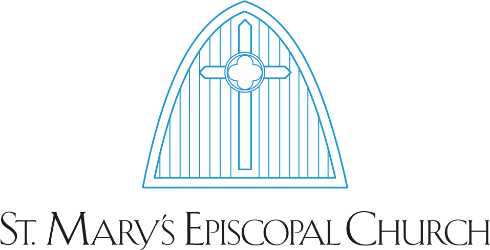A Sermon for the Eighth Sunday after Pentecost
On the Fourth of July my wife and I got on bicycles and peddled from our Northside home down Arthur Ashe Boulevard to the Viriginia Museum of History and Culture. We became part of the overflow audience who were there to witness the naturalization ceremony of 94 new United States citizens. They came from 46 different countries—from Afghanistan to Zimbabwe. All of them had to work through a long application process, which required a test of their proficiency in English and basic knowledge of civics.
Then came the moment we were all waiting for: the administration of the Oath of Allegiance. A judge of the 4th U.S. Circuit Court of Appeals, robed in black, asked the candidates to stand and raise their right hand and take the oath. They
• Renounced allegiance to any foreign power.
• Swore allegiance to the Constitution of the United States.
• Promised to respect and uphold the laws of this land.
• Resolved to uphold the duties of citizens to defend our country.
• And solemnly promised to be faithful …
“… so help me God.”
That solemn ceremony was transformative for the 94 who took the Oath of Allegiance. By their promises before the magistrate, and by sincerely saying their vows before witnesses, they became U.S. citizens. Now they enjoyed all the rights of citizens, now the duties and responsibilities of citizens were theirs to uphold and fulfill, now there was no legal barrier or impediment to their sharing fully in the civic life of our nation.
To celebrate that transforming moment, we sang patriotic songs and ate sheet cake from Ukrop’s. The hall was filled with happy faces, families who posed for a picture to memorialize the joyous occasion, each new citizen with a flag in hand.
Some of the new citizens were soldiers in uniform. Afterwards I saw a group of them gathered at a picnic table, having lunch. I asked them, “Are you from the same unit, did you know each other before today?” They happily answered, “No, we just met … that’s the Army! We come from different backgrounds, but the Army brings us together.”
At their best our national institutions—citizenship, military service, voting, even paying taxes—bring us together. They enlarge our sense of kinship. Though we come from many kindreds and tongues, we share values and commitments which transcend our differences, and which lead us.
There is something religious about our civic life—that was my experience on July 4th—which can help us to see the life-changing and life-enlarging dimensions of our liturgy.
Today is a baptismal day. The parents and godparents of Stella, Whiting, Harper, Poppy, Haiden, and Izzy will make solemn promises on behalf of their children, answering, “I will, with God’s help.”
They will formally renounce Satan, evil, and sin.
They will turn to Jesus Christ and pledge their allegiance to him as Savior and Lord, trusting in his grace and love.
And we who witness their vows—we as a congregation—will promise to support them in their life in Christ.
All of us will promise God and promise each other that we will bear true faith and allegiance to the baptismal covenant.
Today has power to transform us all. The promises we make will change us, renewing, reforming, and shaping our lives, as we seek, with God’s help, to live into our duties and responsibilities as parents and godparents and as a congregation.
Holy Baptism is an occasion of great grace for the baptized. Seeds of faith are planted, which grow over the course of a lifetime, as they are nurtured by parents and godparents and the ministries of the church. Often the growth is slow and hard to see—God plays the long game. But other things change more immediately.
Holy Baptism creates kinship. It unites people of different backgrounds. We may come to church as strangers, but when we pass through the waters of Holy Baptism, we become friends in Christ. We become part of the family of God.
We are baptized into the household of God. We are not baptized into a particular parish or even into the Episcopal Church. Holy Baptism transcends congregation and denomination—and yes—country and nationality. Through Holy Baptism we become kin to Christians all around the world, people of many different churches and traditions. We belong to Christ, who is Lord and Savior of all.
I would even say that Holy Baptism enlarges our kinship with people of other religions or no religion, as the baptismal covenant asks us to recognize our kinship with the whole of humanity, respect the dignity of every human being, and work for justice and peace for all.
Holy Baptism is ultimately life-changing and life-enlarging because God has chosen us for adoption into God’s family. It is God’s initiative in sending Jesus Christ to die for us and to rise for us that makes us one with God, as Jesus is one with God.
One more word of encouragement: According to Ephesians, we are marked with the seal of the Holy Spirit. And so in Holy Baptism, after we have administered the water of baptism, we take the oil of chrismation (fragment oil which was blessed by the Bishop) and we make the sign of the cross on the forehead of the newly baptized, saying to each, “You are sealed by the Holy Spirit and marked as Christ’s own forever.” We are Christ’s own for ever!
And the Apostle Paul gives us this assurance in his letter to the Romans: Nothing can separate us from the love of God. Nothing—neither hardship, nor distress, nor peril, nor violence, nor death can separate us from the love of God in Jesus Christ. Nothing on this earth, no power, no kingdom, no ruler, no adversary, no enemy, no division— nothing can threaten or destroy our unity with God, and our unity with each other. Thanks be to God!
Amen.
The Rev. Gregory Bezilla
